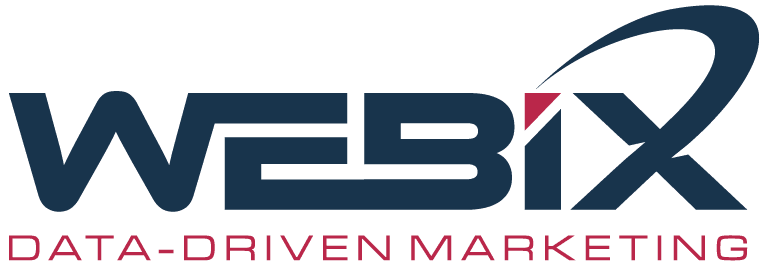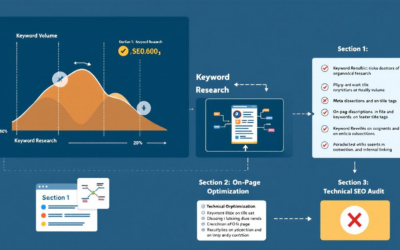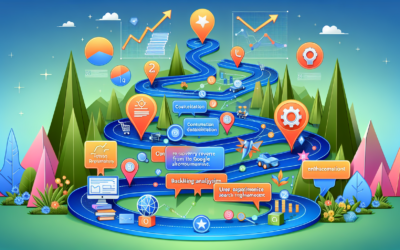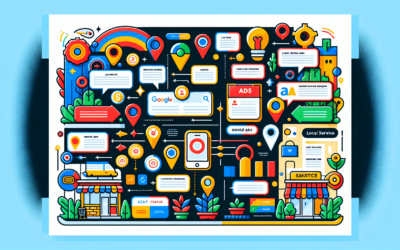Want to grow your small business without breaking the bank? Discover how content marketing for small businesses can attract customers and build lasting relationships. This article covers key strategies and how to get you started.
Key Takeaways
-
Content marketing is a cost-effective way for small businesses to attract customers and build brand loyalty without relying solely on paid ads.
-
Diverse content formats like blogs, videos, and social media posts can cater to different audience segments, and you can significantly enhance engagement.
-
Tracking KPIs and measuring your content’s performance is crucial to refine your strategy and ensure long-term success.
Understanding Content Marketing for Small Businesses

Content marketing is more than just a buzzword; it’s a strategic approach to content creation, publishing, and sharing valuable content to create content with a target audience. For small businesses, it’s an incredibly effective way to attract new customers without the hefty price tag of traditional advertising. Delivering relevant and high-quality content allows small businesses to organically reach interested customers and build lasting relationships. Local SEO can enhance this process by making it easier for local customers to find your business online.
Learn how to create, publish, and share valuable content that resonates with your target audience.
The goal of content marketing is to provide valuable, relevant content that attracts and engages potential customers. This approach not only raise brand awareness but also positions the business as a thought leader in its industry. Nonetheless, ensuring that the content is accurate and informative is essential, as low-value content can damage brand credibility.
One of the biggest advantages of content marketing for small businesses is its long-term benefits. Unlike paid advertising, which stops delivering results once the budget runs out, content marketing continues to drive engagement and generate leads over time. Consistently providing valuable content helps small businesses establish a loyal customer base and achieve a positive return on investment.
Key Benefits of Content Marketing

The benefits of a robust content marketing strategy are manifold. First and foremost, content marketing plays a critical role in increasing brand recognition and generating leads. Effective content marketing strategies attract more visitors to small business websites, enhancing their online presence and reach. These strategies also boost customer engagement and brand awareness.
One of the standout benefits of content marketing is its ability to improve search engine rankings. Regularly publishing high-quality content with relevant keywords enhances the visibility of small businesses on search engine results pages, and you can make it easier for potential customers to find your business online, driving more organic traffic to the website.
Additionally, content marketing fosters brand loyalty by engaging existing customers and encouraging repeat business. Personalized email campaigns, for example, can help maintain customer loyalty and enhance brand recognition. Overall, content marketing offers long-term benefits that outlast paid advertising efforts, leading to sustained engagement and a higher return on investment.
Types of Content Marketing Formats
To effectively engage with their audiences, small businesses should utilize diverse content types. Common formats include:
-
Blog articles
-
Video content
-
Social media posts
-
Email newsletters
-
Infographics
Each format serves a unique purpose and caters to different segments of the audience, making it essential to experiment and see what resonates best.
Repurposing content into various formats is a smart strategy to maximize outreach. For instance, a blog post can be turned into a video or infographic, enhancing its shareability and engagement. This approach ensures that the content reaches a wider audience and remains relevant across multiple platforms. Content repurposing helps small businesses reach a wider audience and maintain relevance across multiple platforms.
Blog Articles
Blogging is considered one of the most impactful content marketing strategies for small businesses. It helps establish authority and significantly increases website traffic. By consistently publishing blog content, businesses can improve their SEO, resulting in better search engine rankings and more visibility. How-to articles are particularly effective in providing valuable information and establishing authority. Consistent blogging can also establish thought leadership in the industry.
To create high-quality blog content, it’s essential to focus on specific niches and provide original, compelling information that meets audience needs. Incorporating relevant keywords can enhance the visibility of blog posts, providing long-term value and helping the business stand out in a crowded marketplace.
Social Media Posts
Social media is a powerful tool for content marketing, especially for small businesses. When using social media, it’s important to consider best practices, content formats, and audience demographics. Sharing behind-the-scenes photos of the business and employees can enhance audience understanding and engagement, and you can use these posts to build a more personal connection with your audience. These posts can significantly boost audience engagement.
Social media posts can also be used to share links to new content, such as blogs and newsletters, further engaging the audience. Platforms like Facebook, Instagram, Twitter, TikTok, and LinkedIn are effective for publishing shareable content and reaching a broader audience.
Video Content
Video content is recognized as one of the most engaging forms of content for small businesses. Video marketing is crucial for capturing audience attention and driving engagement. Whether it’s short-form or long-form videos, high-quality footage with a narrative that entertains or educates is essential for video quality.
Small businesses can create videos on a budget by enlisting team members for short Instagram and TikTok videos. Additionally, businesses can publish their videos on YouTube and embed them in related blog posts to maximize reach.
Email Newsletters
Email newsletters are a valuable tool in digital marketing, helping businesses share updates and grow their contact database. By sending out regular newsletters, small businesses can keep their audience engaged and informed.
Newsletters can include links to blog content, new products, and event updates to keep subscribers interested. Optimizing email marketing efforts by automating emails and sending customized content to leads can significantly enhance engagement and ROI.
Infographics
Infographics are effective tools for presenting complex information clearly and can enhance shareability. Visually appealing graphics allow businesses to convey important data and insights in an easy-to-understand and engaging format for the audience.
Developing a Successful Content Marketing Strategy

A well-defined content marketing strategy is pivotal for small businesses to outline their marketing efforts. Creating and distributing effective content should be an integral part of your marketing strategy to ensure that it aligns with each stage of the customer’s journey. Effective content distribution is crucial for reaching your target audience and maximizing the impact of your content. This section will guide you on how to create and distribute effective content that aligns with each stage of the customer’s journey.
Consistency is key when it comes to content marketing. Creating value-driven content that addresses the audience’s needs helps small businesses build a sustainable model for attracting and retaining customers. Maintaining efforts over time is essential for long-term success.
Identifying Your Target Audience
Establishing who your business is trying to reach is the first step in defining your target audience. Understanding their interests and pain points is essential for creating relevant content that resonates with them, and you can use this information to tailor your content marketing strategy.
Audience research and data are crucial for making informed content marketing decisions. Creating a target audience avatar that includes demographics and interests ensures the effectiveness of a content marketing strategy. Audience segmentation can further refine content targeting and improve engagement.
Setting Realistic Goals
Setting realistic and measurable goals is critical for effective content marketing. Goals should be specific, measurable, achievable, relevant, and time-bound to ensure that they can be tracked and achieved.
Creating a Content Calendar
A content calendar helps stay organized and ensures alignment with goals. Mapping out content publication helps businesses maintain consistency across marketing channels and avoid spreading resources too thin.
When deciding how often to publish content, it’s important to consider the number of platforms and the type of content being created. Using an editorial calendar can help in managing publication efforts and maintaining a consistent posting schedule.
Promoting Your Content Effectively

Proper promotion of content is essential for success in content marketing. Small businesses should diversify and repurpose content to perform well across different channels. Utilizing both organic and paid methods forms a vital component of an effective distribution strategy, and you can maximize your reach by diversifying your promotional efforts. Additionally, content amplification can further enhance the visibility and impact of your content.
Strategies for promoting content can include outreach on platforms like Quora and Reddit, and sending content to bloggers. Promoting blog posts across social media and sending them to newsletter subscribers is also essential after publishing.
Leveraging Social Media Channels
Customizing content for different social media platforms keeps the audience engaged and maximizes the effectiveness of your marketing efforts. Having a well-defined social media strategy is crucial to achieve these goals. Slightly tweaking each piece of content for optimal performance on various platforms can significantly enhance engagement, and you can achieve better results by customizing your approach.
Experiential local businesses, such as photographers and restaurants, can greatly benefit from visual social media platforms like Instagram and Pinterest. Incorporating Call to Actions (CTAs) at the end of your social media posts encourages audience engagement and interaction.
Utilizing Email Marketing Tools
Email marketing tools are essential for effectively distributing content to your audience. Utilizing email newsletters allows small businesses to share valuable content, including promotions and updates, keeping their audience engaged.
To measure engagement, track metrics such as open rates, click-through rates, and conversion rates from your email campaigns. Segmenting your email list based on customer behavior and preferences can help tailor your messages and improve response rates. Implementing email automation can streamline your email marketing efforts and significantly boost engagement.
Collaborating with Other Local Businesses
Partnerships with local businesses can significantly enhance content reach and engagement. Co-creating content with other local businesses provides the benefit of shared audiences and broadened visibility for both parties.
Additionally, cross-promotion strategies can leverage combined resources for greater impact.
Measuring Success and Refining Your Strategy
Tracking the results of your content marketing strategy is crucial to monitor performance and refine your approach. Regularly checking performance and assessing goal achievement helps identify successes and areas needing improvement, and you can use this information to refine your strategy. Tracking performance metrics is essential to guide future content marketing efforts.
Analytics can reveal the effectiveness of your content, highlight areas for improvement, and guide future strategies. Generating bi-weekly reports can be an effective method for measuring progress in your content marketing efforts.
Using Google Analytics
Google Analytics is a useful tool. It provides insights into customers’ online activity. Using Google Analytics allows businesses to track metrics related to their content marketing efforts, including user behavior and website traffic.
A logical solution to measuring the effectiveness of content is to track sales driven by each piece of content. This can help businesses understand which types of content are most effective in driving conversions.
Tracking Key Performance Indicators (KPIs)
Examples of important KPIs for content marketing include website traffic, social likes and shares, and sales. Tracking KPIs such as conversion rates can help businesses understand their audience better and optimize their content strategy for higher engagement.
Key Performance Indicators (KPIs) are metrics used to evaluate the success of content marketing strategies. Regularly monitoring these metrics ensures that content marketing efforts are aligned with overall business objectives.
Common Mistakes to Avoid in Content Marketing

Focusing on engagement over sales can lead to wasted efforts in content marketing. It’s essential to develop a unique approach and visual identity for your content to stand out in a crowded marketplace.
Small businesses often fall into common pitfalls in their content marketing efforts that can hinder their success. By avoiding these mistakes and focusing on creating high-quality, relevant content, small business owners can achieve a successful content marketing strategy. Maintaining high content quality is crucial to engage and retain your audience.
Overlooking Quality for Quantity
Prioritizing quality over quantity is essential for a successful content marketing strategy. Readers want unique content that isn’t found everywhere else. Marketing software with AI writing assistants and design tools can help in creating high-quality content. Maintaining high standards in content production is crucial for engaging and retaining your audience.
Ignoring SEO Best Practices
Original content improves SEO and appeals to readers seeking unique material. Keyword optimization provides the technical backing needed for growth. Optimizing content for search engines is essential for improving visibility and achieving higher rankings on search engine optimization results pages.
Implementing effective SEO strategies is vital for the overall success of content marketing efforts.
Summary
Content marketing is a powerful tool for small businesses, offering numerous benefits such as increased brand recognition, lead generation, and improved SEO. By utilizing diverse content formats, setting realistic goals, and promoting content effectively, small businesses can create a successful content marketing strategy. Remember to track performance and refine your approach based on data to ensure long-term success.
Frequently Asked Questions
What is content marketing?
Content marketing is all about creating and sharing valuable content that attracts new customers and boosts brand awareness. It’s a smart way to connect with your audience and grow your business!
How can content marketing benefit small businesses?
Content marketing helps small businesses boost brand recognition and generate leads, ultimately improving SEO and building customer loyalty. It’s a smart way to get more bang for your buck in the long run!
What types of content formats should small businesses use?
To really connect with your audience, small businesses should mix it up with blog articles, videos, social media posts, email newsletters, and infographics. Using a variety of formats keeps things fresh and engaging!
How can small businesses measure the success of their content marketing efforts?
To really know how your content marketing is doing, keep an eye on KPIs like website traffic, social media engagement, and sales. Google Analytics is a great tool to help you track these metrics!
What are some common mistakes to avoid in content marketing?
Avoiding mistakes like prioritizing engagement over sales, churning out generic content, and neglecting quality and SEO can really amp up your content marketing game. Keep it specific and valuable, and you’ll see better results!









